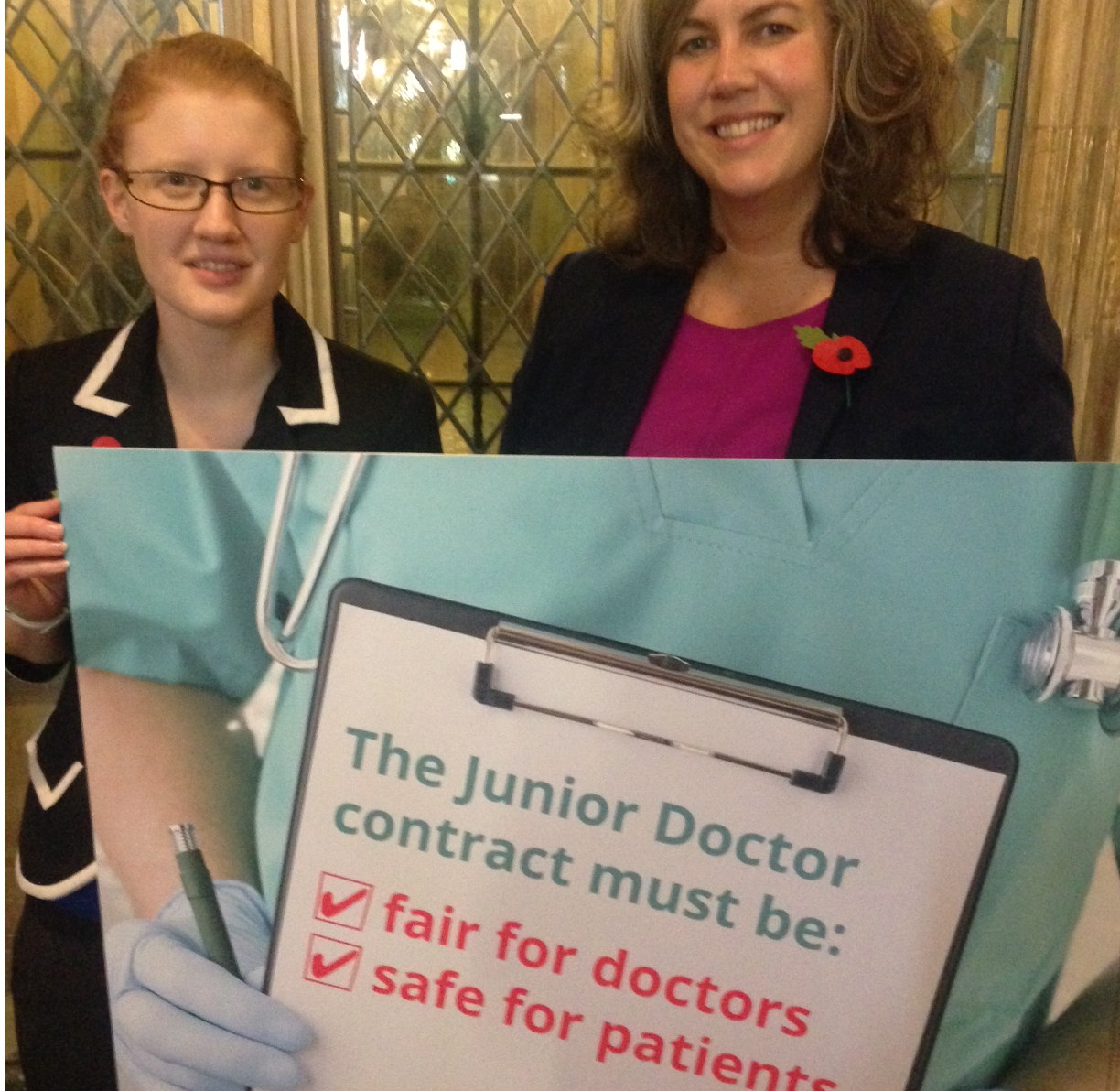Holly Lynch MP From Halifax, For Halifax

The Junior Doctors’ contract renegotiation will a have huge implications for hospitals across the country; especially those already facing staffing issues such as Calderdale Royal Hospital.
The new contract has been drawn up by Health Secretary Jeremy Hunt and has been heavily criticised by students, doctors and even members of his own party. There is widespread concern that it will lead to the overworking of doctors and pay cuts.
This comes at a time when NHS morale is already at a low ebb after five years of privatisation and under investment. The handling of the junior doctor contract dispute has caused unnecessary anger, and is now a real threat to the recruitment and retention of NHS staff.
The current banding system makes it extremely expensive for an NHS Trust to routinely overwork a junior doctor in excess of their contracted hours. This essentially creates a financial disincentive for Trusts to overwork junior doctors, and the BMA say this has played an important role in bringing hours down since it was introduced under the current contract.
The current system is not perfect, but removing it, as the Government has proposed, without putting in place clear safeguards risks leaving Trusts free to exploit junior doctors, taking us back to the bad old days of the 1990s.
In addition there would be pay cuts for many junior doctors.
The Government wants to change pay progression so it reflects responsibility, rather than time-served. This change will hit women who take maternity leave and doctors who work less than full-time; for example those who have caring responsibilities.
It could also affect doctors who take a career break to carry out academic research or who want to retrain in another speciality.
Based on the proposals it seems likely that those most likely see a fall in pay will be those junior doctors currently working unsocial hours.
Junior doctors are paid between 7am and 7pm, Monday to Friday, with remaining hours as well as Saturdays and Sundays considered to be unsocial hours and attracting more pay. The Government wants to extend normal working hours to 10pm and include Saturday. For some doctors the rise in basic pay will not be enough to replace what they lose in unsocial hours pay.
These changes are likely to have a detrimental effect on Calderdale Royal Hospital.
As was reported earlier this month our hospital has drawn up a plan to temporarily close the A&E department in the event of staffing shortages[1]. In these occasions all A&E services would move to Huddersfield at short notice.
The Trust insists that this is not due to their current financial difficulties but is rather due to a shortage of doctors. Director of Operations, Helen Barker describes this as “the ongoing national shortage of middle-grade doctors.”[2]
Faced with national doctor shortages the government would be expected to be working with doctors to ensure that more are being trained and fewer are leaving the profession. Yet the current contract dispute is having exactly the opposite effect.
A recent poll found that (71.4%) of the 4,129 junior doctors polled said they would move abroad, become a locum (private doctor) or give up medicine altogether if the contract is forced on them next year.
The NHS depends on our hardworking doctors and they have been let down by this government. Jeremy Hunt has pushed things to stage where doctors are even considering striking.
Nobody wants to see industrial action, but nobody wants to see a return to the bad old days of junior doctors too exhausted to provide safe patient care.
For the good of our doctors, the NHS and Calderdale Royal Hospital the government should rethink this contract.
